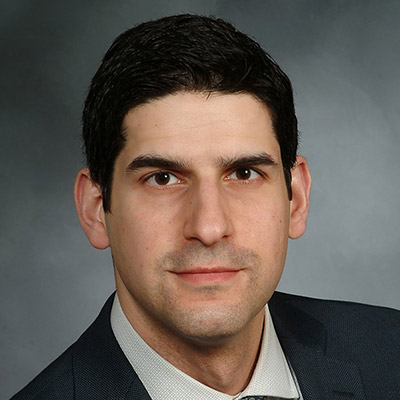The risk of renal trauma is higher in the pediatric kidney than in the adult kidney; however, there are no specific guidelines for the management of pediatric renal trauma. Management is based on adult guidelines, where most renal trauma is managed expectantly with observation, and surgery is limited to patients who are unstable or have catastrophic injuries. Ardavan Akhavan, MD, a pediatric urologist and Director of Pediatric Robotic and Minimally Invasive Surgery within the Institute for Pediatric Urology at New York-Presbyterian/Weill Cornell Medicine, and his colleagues recently completed a study to examine the presentation, management, and outcomes of pediatric patients with renal trauma. The results of this study were published in Urology in December 2023.
“There’s a lack of data explaining what the optimal treatment for infants, children, and teenagers would be,” says Dr. Akhavan. “All the data is based on adult outcomes, so it’s unclear if children present or respond differently than adults”
Dr. Akhavan and his colleagues conducted a retrospective study using the Pediatric Health Information System (PHIS) to identify infants, children, and adolescents who had experienced renal trauma. “We wanted to see if there were any age-related differences in the presentation, management, or outcome of patients with renal trauma who were younger than 18,” says Dr. Akhavan.
From this database, 3,720 patients were identified, of which 86.7% had low-grade injuries, and 94.7% were managed non-operatively. The study found that younger patients presented with more complex injuries, namely that they had a higher incidence of bilaterality as well as concomitant injuries involving other organ systems. Younger patients had more extensive treatment, including longer lengths of stay, higher rates of blood transfusions, and a higher chance of being admitted to the ICU. Additionally, younger patients had a higher risk of mortality.
“The results from this study suggest that younger patients may be more vulnerable to renal trauma and may have unique outcomes,” says Dr. Akhavan. “It also suggests that the adult-based renal trauma guidelines may not necessarily be applicable to infants and children.
The results from this study suggest that younger patients may be more vulnerable to renal trauma and may have unique outcomes. It also suggests that the adult-based renal trauma guidelines may not necessarily be applicable to infants and children.
— Dr. Ardavan Akhavan
Further research is needed to validate these findings in a larger cohort, but they suggest that there may be a role for age-based guidelines for the management of renal trauma in children and infants.
Minimally Invasive Approaches for Pediatric Conditions
In his practice, Dr. Akhavan uses minimally invasive and robotic approaches to treat disorders of the kidneys, ureters, bladder, and genitals in pediatric patients. His goal is to optimize patient outcomes while minimizing pain, hospitalization length, and recovery time.
Since Dr. Akhavan joined NewYork-Presbyterian/Weill Cornell Medicine in 2017, the Pediatric Minimally Invasive and Robotic Surgery program has performed hundreds of robotic procedures in infants and children, quickly becoming the busiest pediatric robotic program in the region. Patients from all over the world have traveled to New York for the unique procedures offered. It is one of the only programs routinely performing infant robotic pyeloplasty in babies as young as eight weeks of age, as well as robotic ureteral reimplantation to treat vesicoureteral reflux. “We offer the widest breadth of minimally invasive surgical options in the region, and we have the most experience,” he says. “We can do complex reconstructions of the urinary tract in children as young as two months of age.”
We offer the widest breadth of minimally invasive surgical options in the region, and we have the most experience. We can do complex reconstructions of the urinary tract in children as young as two months of age.
— Dr. Ardavan Akhavan
Dr. Akhavan is one of a very limited group of clinicians in the country that can perform complex robotic urinary tract reconstructions, including robotic appendicovesicostomy and bladder neck reconstruction for children with incontinence secondary to neurogenic bladder from spinal cord injury or spina bifida. He also has unique experience performing fetal surgery for patients with lower urinary tract obstruction and offers counseling to expectant parents with hydronephrosis and other fetal urological anomalies.
“With minimally invasive surgery, you have a quicker time to recovery, decreased narcotic requirements and pain scores, and shorter hospitalization.” says Dr. Akhavan. “It’s less disruptive to families and children can return to school faster.”
Dr. Akhavan is part of a consortium of pediatric robotic surgeons across the country. “We’re pooling our data with those of other institutions to compare success rates and outcomes with those of open surgery.” he says.




